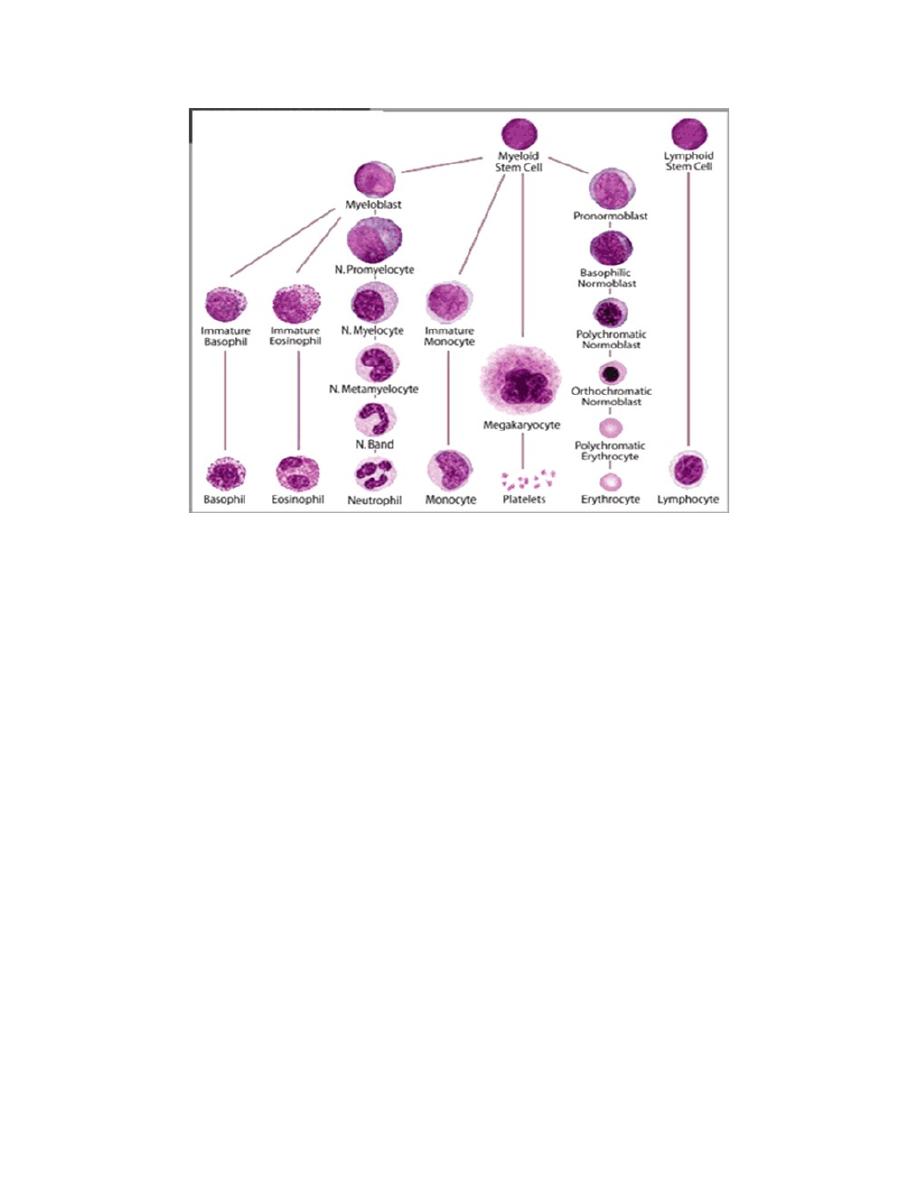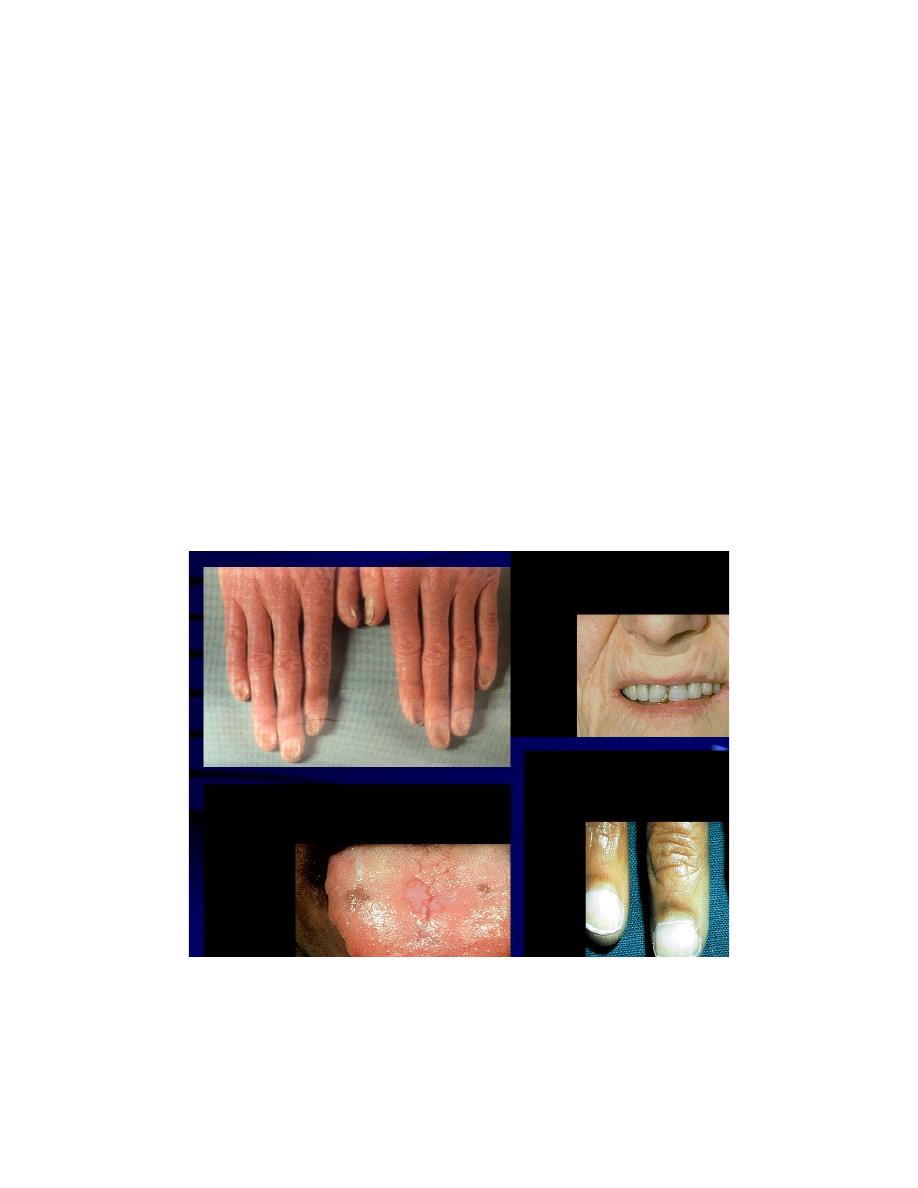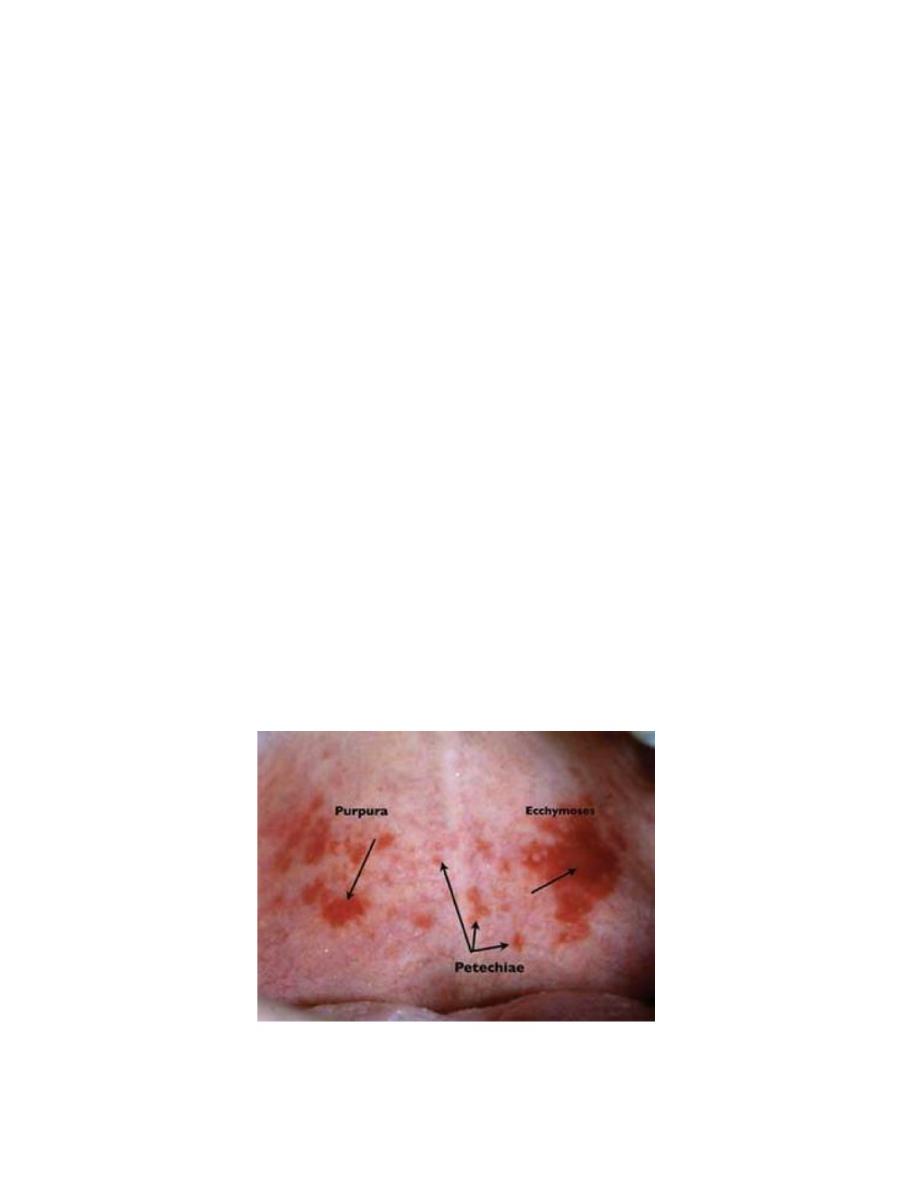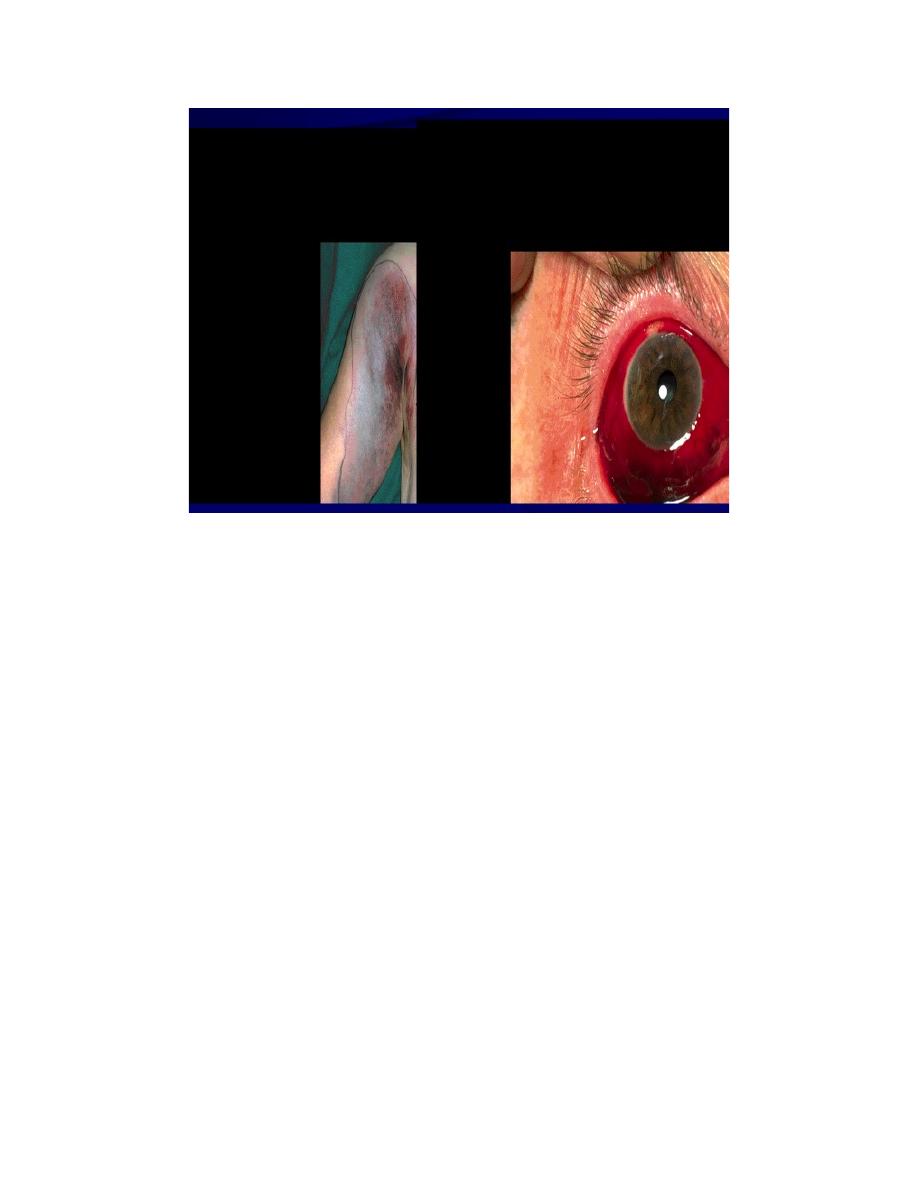
Manifestation of blood disorders
1.HISTORY
I-Medical history
A.The present illness, focus on the following:
1.Bleeding.
2.Infection or symptoms related to enlargement of L.N liver or the spleen
3.Non-specific symptoms related to anaemia:Malaise ,
weakness, headache &
weight loss.
B. Any exposure to drugs or chemical.
C. Review of systems; including the nervous system, is necessary as blood
dyscrasia effect many, if not all, organ systems .
II- Family history; information about the health of other family members as
well as the ethnic background .
2- PHYSICAL EXAMINATION
A- Thorough physical exam. Should focus on; SKIN, MOUTH ,MUCOUS
MEMBRANE,& EYES.
JAUNDICE
PALLOR
PETECHIAE & ECCYMOSIS.
ULCERS
B- Hepatomegaly, splenomegaly,enlarged or tender L.N ,soreness over the
ribs or sternum & variety of neurological abnormalities.

Components of Blood
Plasma:
Transport mechanism 90-92% water, 6-7% proteins,2-3% :Fats,Carbohydrates
(glucose),Electrolytes,Gases (O2, CO2) and Chemical messengers.
ANAEMIA
Anaemia defined as a reduction in one or more of the major red blood cell
(RBC) measurements obtained as a part of the complete blood count (CBC):
haemoglobin concentration, hematocrit (HCT), or RBC count.
In practice, however, a low haemoglobin concentration or a low haematocrit is
most widely employed for this purpose.
A-Symptoms & signs pertaining to anaemia.
1-Non-specific symptoms include; fatigue, weakness, shortness of breath &
symptoms of CHF
2-Signs ;

Pallor ,tachycardia , splenomegaly in minority of cases.
Venous hum in severe anaemia ( Hb < 4 gm/dl).
Functional systolic(flow) murmur.
History:
1-Is there a recent history of loss of appetite, weight loss, fever, and/or night
sweats that might indicate the presence of infection or malignancy?
2-Is there a history of, or symptoms related to, a medical condition that is
known to result in anemia (eg, tarry stools in a patient with ulcer-type pain,
significant blood loss from other sites, rheumatoid arthritis, renal failure)?
3-Is the anemia of recent origin, subacute, or lifelong? Recent anemia is almost
always an acquired disorder, while lifelong anemia, particularly if accompanied
by a positive family history, is likely to be inherited (eg, the
haemoglobinopathies, thalassaemia, hereditary spherocytosis).

Polycythemia:
Overproduction of erythrocytes.Occurs in patients > 50 years old .Most deaths
due to thrombosis.Results in bleeding abnormalities:Epistaxis, spontaneous
bruising, GI bleeding
PLATELETS:
NORMAL PLATELET COUNT 150-400 X10
9
/L
PLATELET disorders;
Defect in count :THROMBOCYTOPENIA
Defect in function :THROMBOASTHENIA.
CLINICAL MANIFESTATIONS;
1-PETECHIAE:
are pinpoint non-blanching spots that measure less than 2 mm in
size, which affects the skin and mucous membranes
2-PURPURA:
is a non-blanching spot that measures greater than 2 mm.
3-ECCHYMOSIS(BRUSIES):
appear on the skin as a result of trauma to the body.
They occur when the small veins, capillaries, and muscle and fiber tissues under
the skin break.
4- HAEMATOMA:
is a collection of blood outside of a blood vesse.

Clotting Disorders:
Haemophilia:
Deficiency or absence of a blood clotting factor
Deficiency of factor VIII causes haemophilia A.
Deficiency of factor IX causes haemophilia B.
Deficiency is a sex-linked, inherited disorder.
Defective gene is carried on the X chromosome.
Signs & Symptoms:
Numerous bruises, deep muscle bleeding, and joint bleeding.
